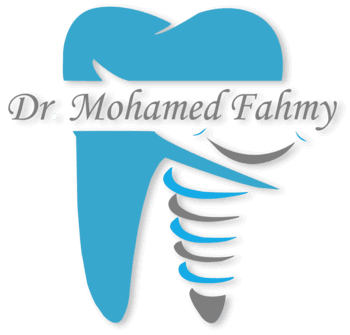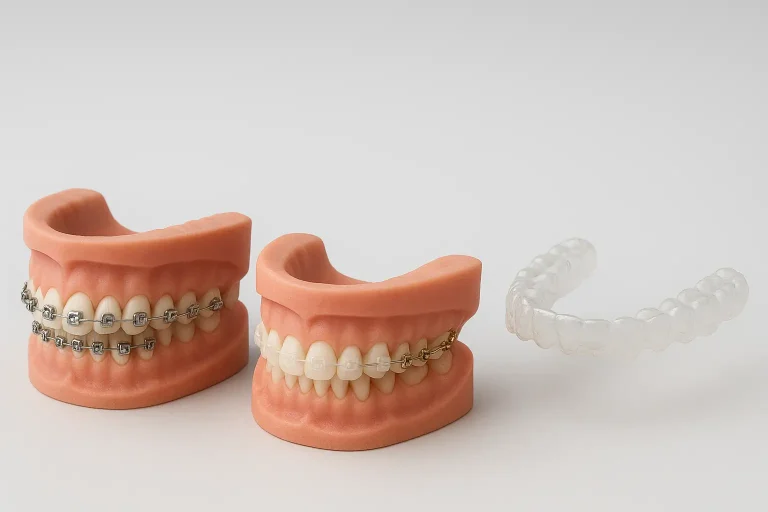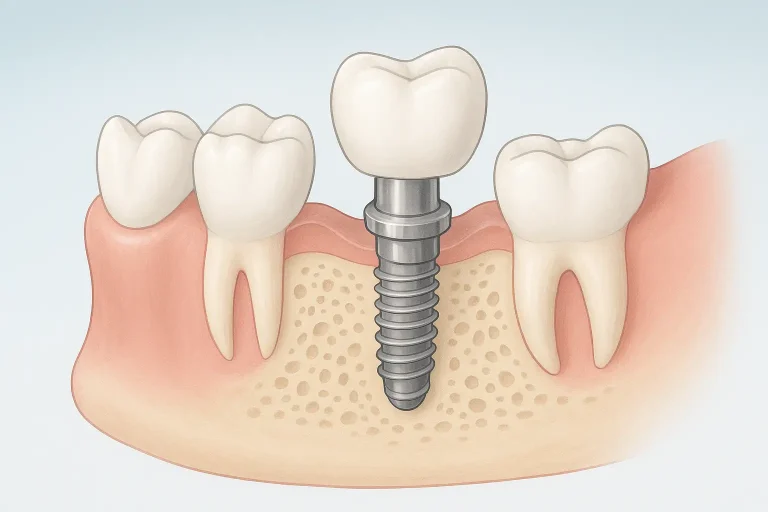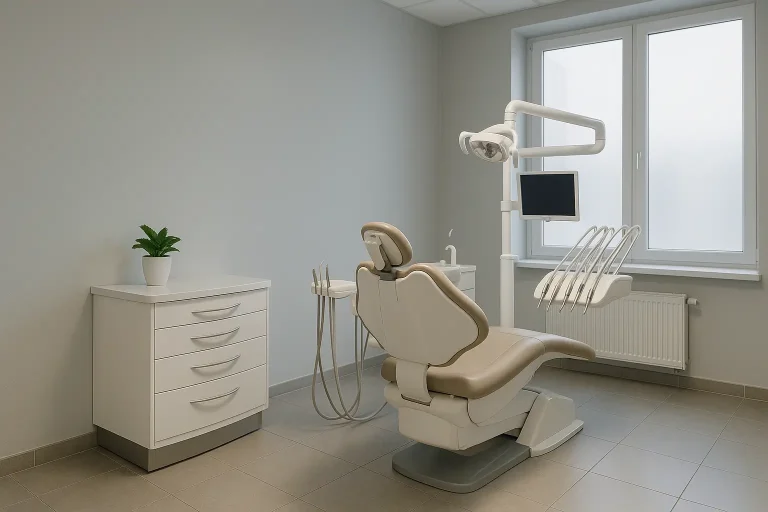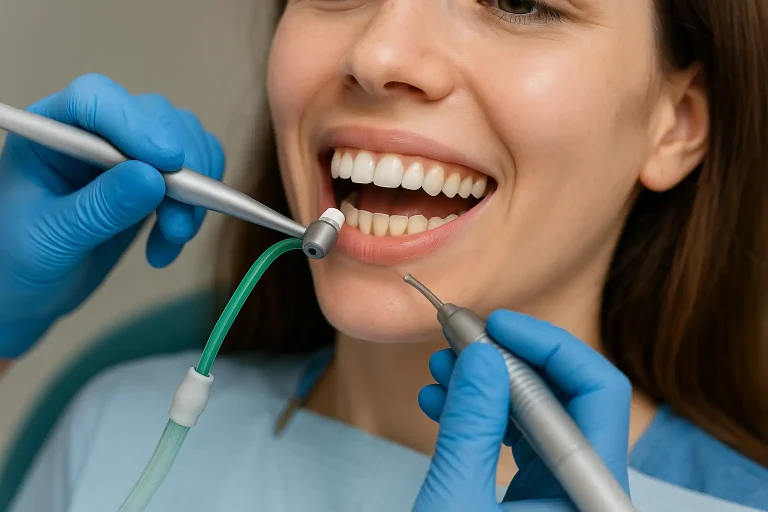Book Appointment Now
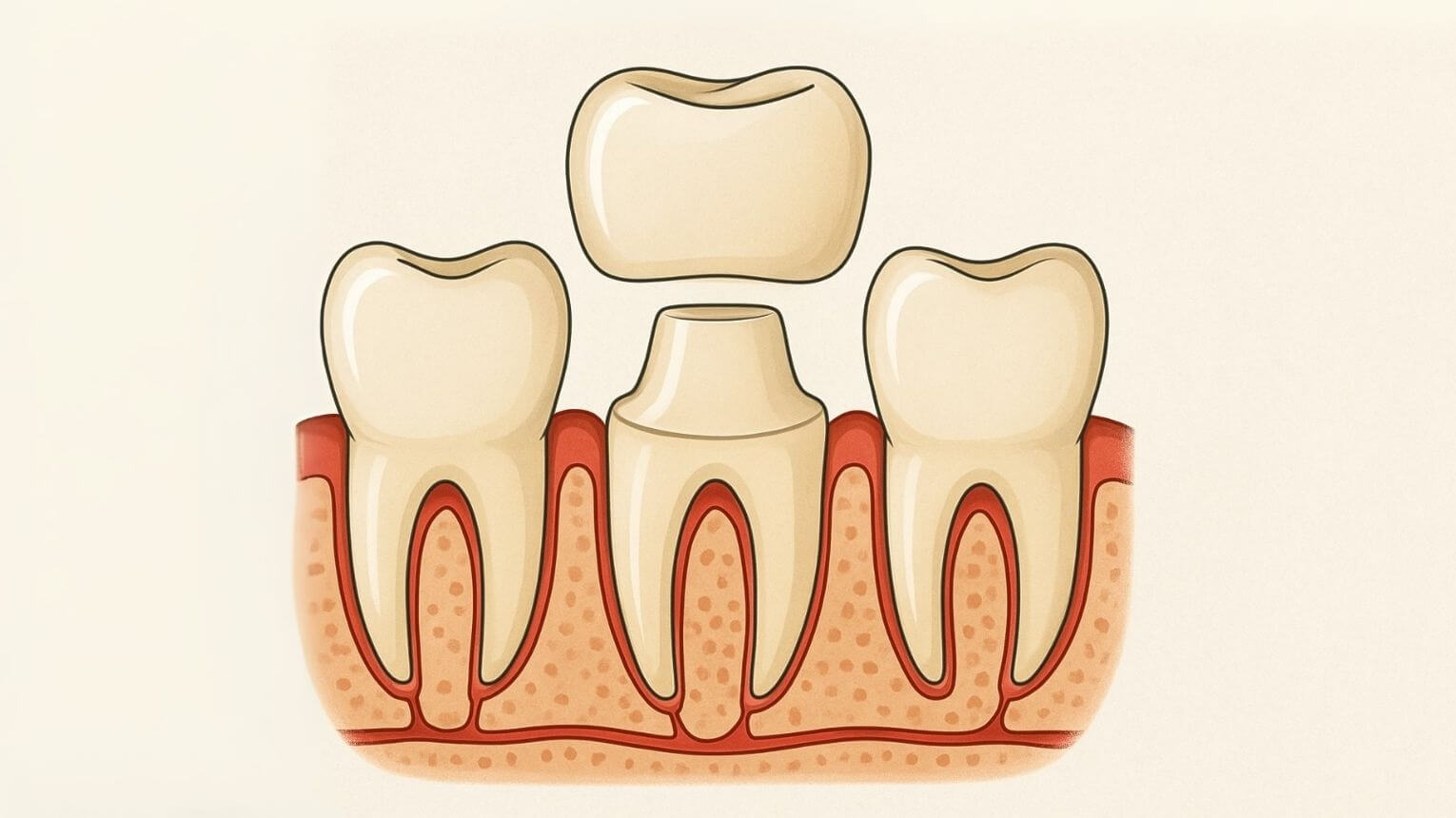
How to Choose the Ideal Dental Crown? A Comparison of Types and Features
Introduction: Your Guide to Choosing the Best Dental Crown
Imagine saving a tooth at risk of extraction—not just preserving it, but restoring it to its best state in both form and function. That’s the role of a dental crown: a smart protective shield that covers a tooth after a deep filling or fracture, giving it a second chance to remain in your mouth for years to come.
But here’s the question many patients face at the dental clinic:
Is there a single ideal type of crown?
Or does the right choice depend on a complex mix of factors like the tooth’s location, bite force, allergies, and aesthetic preferences?
In this comprehensive guide, we’ll explore the most popular types of dental crowns, their pros and cons, to help you make the best decision for your smile.
Types of Dental Crowns and Their Features
1. Metal Crowns
Materials:
Made from strong metals like nickel, chromium, or gold. One of the oldest and most commonly used types.
Advantages:
- Exceptional strength and durability
- Can withstand intense biting and chewing forces
- Long-lasting without breaking or wearing down
Disadvantages:
- Metallic appearance that doesn’t resemble natural teeth
- Not suitable for front teeth due to noticeable color
- May cause allergic reactions in some people
2. Porcelain-Fused-to-Metal Crowns (PFM)
The Best of Both Worlds: Strength and Aesthetics
Has a metal core for durability, covered with porcelain for a tooth-like appearance.
When is it recommended?
- Ideal for partially visible back teeth
- Not recommended for front teeth as the metal line near the gum may eventually show
- Porcelain layer may chip or wear over time
3. Resin Crowns
Cost vs. Durability
More affordable than other types, made from a reinforced plastic-like resin.
Temporary Use:
- Commonly used as a temporary solution after fillings or before placing a permanent crown
Cons:
- Less durable, prone to breaking and discoloration over time
- Suitable for those looking for a budget-friendly, short-term option
4. All-Porcelain (Ceramic) Crowns
Aesthetic Choice for Allergy Sufferers
Made entirely of ceramic with no metal, ideal for those allergic to metals.
When is it suitable?
- Perfect for front teeth due to its natural look
- Not ideal for back teeth needing high durability
- More prone to breakage than metal or zirconia options
5. Zirconia Crowns
Strength and Natural Appearance Combined
Made from zirconium oxide, one of the strongest and most attractive crown materials today.
Why is it a top choice?
- Offers excellent strength with a translucent appearance resembling real teeth
- Hypoallergenic
- Stain-resistant and doesn’t wear down surrounding enamel
- Suitable for both front and back teeth
- Higher cost, but a long-term investment
6. E-max Crowns (Lithium Disilicate)
Transparency and Premium Finish
Made from lithium disilicate, known for its translucent shine and high similarity to natural teeth.
Is it worth the cost?
- Absolutely, especially for visible front teeth that need a perfect aesthetic
- Balances decent durability with premium looks
- Ideal for cases where beauty matters without compromising function
How to Choose the Right Crown for Your Case
Choosing a dental crown isn’t just about knowing the types—personal and medical factors play a big role. Here are the most important ones:
Front vs. Back Teeth
Front teeth need high aesthetics, so opt for crowns like zirconia, E-max, or pure porcelain.
Back teeth endure more bite force, so stronger materials like metal or PFM are recommended.
Allergy Considerations
If you’re allergic to metal, avoid metal-based crowns or those with a metal core. Zirconia and all-porcelain are safer choices.
Aesthetic Expectations
The visual aspect is crucial, especially for front teeth. Transparency and color are key.
E-max offers the most natural appearance, followed by zirconia, which balances beauty and strength.
Cost and Longevity
Crown prices vary greatly. Resin is cheapest but least durable, while zirconia and E-max are more expensive but can last for many years.
Your choice depends on your budget and how much you value aesthetics and durability.
Need consultation or treatment? Explore our dental services or book your appointment now via website, WhatsApp, or phone. (+20)1096363526
Frequently Asked Questions About Dental Crowns
1. How long does a dental crown typically last
A high-quality crown can last 5 to 15 years or more depending on the material and how well you care for it.
2. Is crown placement painful?
It’s done under local anesthesia, so it isn’t painful. You might feel mild sensitivity afterward, which fades in a few days.
3. Can a crown change color over time?
Resin crowns can discolor, but zirconia and E-max usually maintain their natural appearance for a long time.
4. Can a broken crown be repaired?
Minor damage may be repairable, but in most cases, replacement is the best solution.
5. Does a crown require special care?
Yes, brush and floss it like your natural teeth, and visit your dentist regularly to check its condition.
Conclusion and Recommendations
There’s no one-size-fits-all crown for everyone. Your ideal crown depends on the tooth’s condition, your cosmetic preferences, and your budget.
If you want the best balance between strength and a natural look, zirconia and E-max stand out—especially for teeth that show when smiling or speaking.
Consulting your dentist is essential.
They’ll help assess your condition and recommend the most suitable option in terms of type, cost, and expected results.
Your Next Step Toward a Healthy Smile
Now that you understand the types and features of dental crowns, the next move is yours.
If you’re considering a crown, don’t hesitate to consult a dental specialist to help you make the best choice for your teeth.
A healthy smile starts with one simple step, start today!

